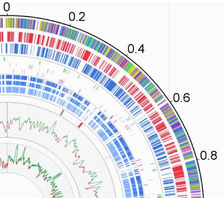|
About CeBIL:
The Centre for Advanced Studies in Biomedical Innovation Law (CeBIL) is an international research centre exploring legal challenges and rapid developments in biomedical innovation in Denmark and around the globe. Based at the University of Copenhagen’s Faculty of Law and directed by Professor Timo Minssen, the Centre unites some of the world’s leading research institutions in interdisciplinary collaboration, including Harvard Law School, Harvard Medical School/MIT and the Universities of Cambridge and Michigan. It also engages a broad variety of stakeholders from industry, government and civil society. The overall aim and ambition of CeBIL is to contribute to the translation of ground-breaking biomedical research into safe, effective, affordable and accessible therapies by analysing the most significant legal challenges to pharmaceutical innovation and public health from a cross-disciplinary perspective.
Antibiotic Resistance and Innovation:
This CeBIL project has three discrete goals:
Principal PORTAL Collaborators:
Aaron S. Kesselheim, MD, JD, MPH
Jonathan J. Darrow, SJD, JD, LLM, MBA Michael S. Sinha, MD, JD, MPH Published Work:
Mundkur ML, Franklin J, Huybrechts KF, Fischer MA, Kesselheim AS, Linder JA, Landon J, Patorno E. Changes in outpatient use of antibiotics by adults in the United States, 2006-2015. Drug Safety 2018 Jul 9.
In a review of the general trends in outpatient antibiotic use among adults over the period 2006–2015 in the US, we found that outpatient use of antibiotics decreased substantially among adults. Powers JH, Evans SR, Kesselheim AS. Studying new antibiotics for multidrug resistant infections: are today’s patients paying for unproved future benefits? BMJ 2018;360:k587. One major regulatory strategy being used to facilitate approval of new antibiotics is the use of non-inferiority (NI) hypothesis pivotal trials. But when antibiotics for life threatening infections are approved on non-inferiority hypotheses, which allow for lesser effectiveness, it cannot be assumed that non-inferior effectiveness today will translate to future superior effectiveness. Rather, superiority trials are feasible and more ethical in patients with resistant infections who have no treatment options—they require smaller patient numbers, have no restrictions on previous treatment, and can include patient relevant endpoints Darrow JJ, Sinha MS, Kesselheim AS. When markets fail: patents and infectious disease products. Food & Drug Law Journal 2018;73:361-382. We examined the reasons why the antibiotic market has not responded to patent-based incentives, compared to other pharmaceutical markets, including: (1) antibiotics are often curative rather than used chronically; (2) uncertainty over future outbreaks of Zika, Ebola, or other diseases make it difficult for businesses to predict whether such outbreaks will occur before the 20-year patent period expires; (3) vaccines must be given to healthy patients, who have a lower willingness to pay compared to patients suffering from disease; (4) concentrated buyer groups, such as government purchasers of vaccines, can exert downward pricing pressure to a much greater extent than the dispersed buyers of most pharmaceutical products in the US. |
|
Program On Regulation, Therapeutics And Law (PORTAL)
Division of Pharmacoepidemiology and Pharmacoeconomics 1620 Tremont Street, Suite 3030 Boston, MA 02120 |






